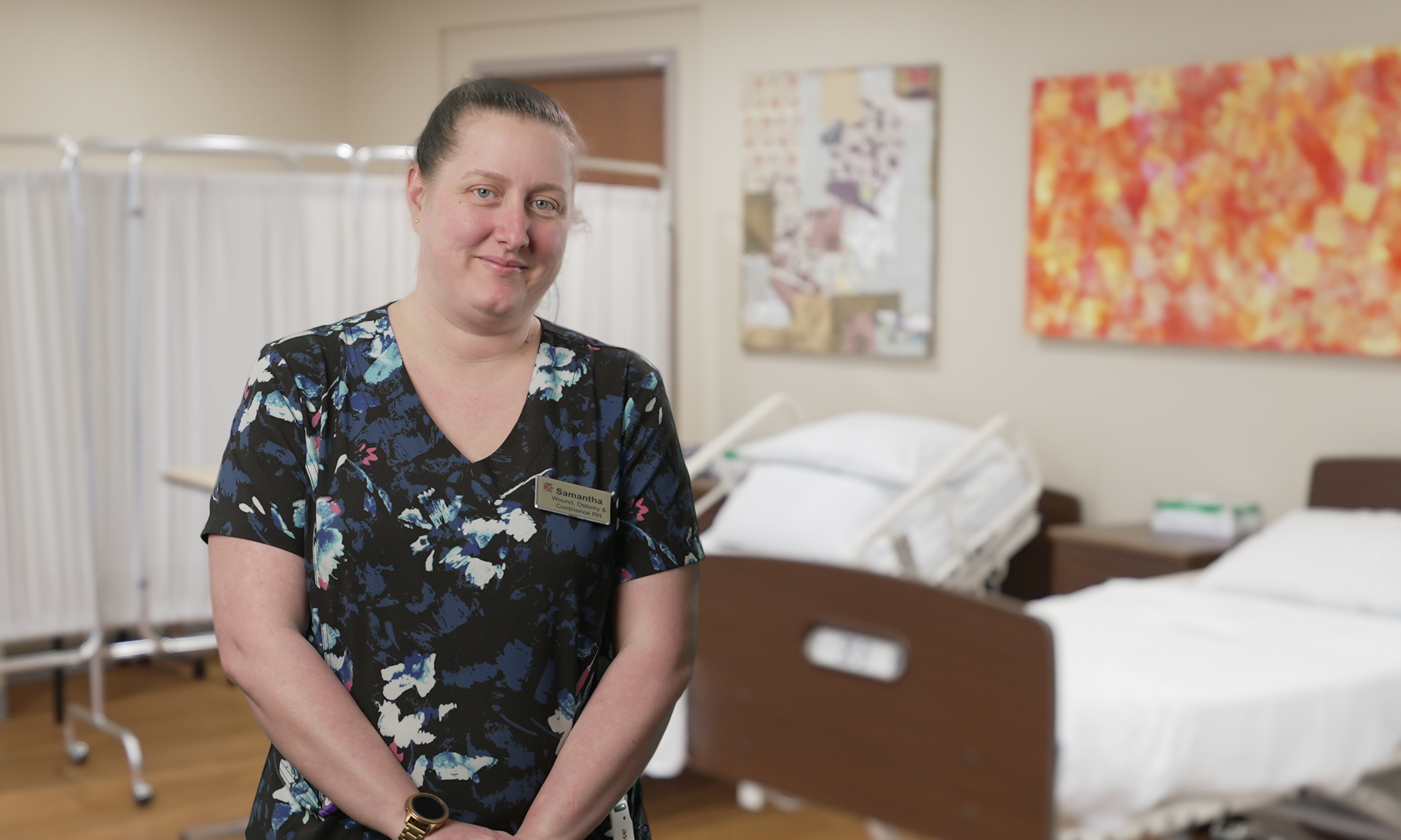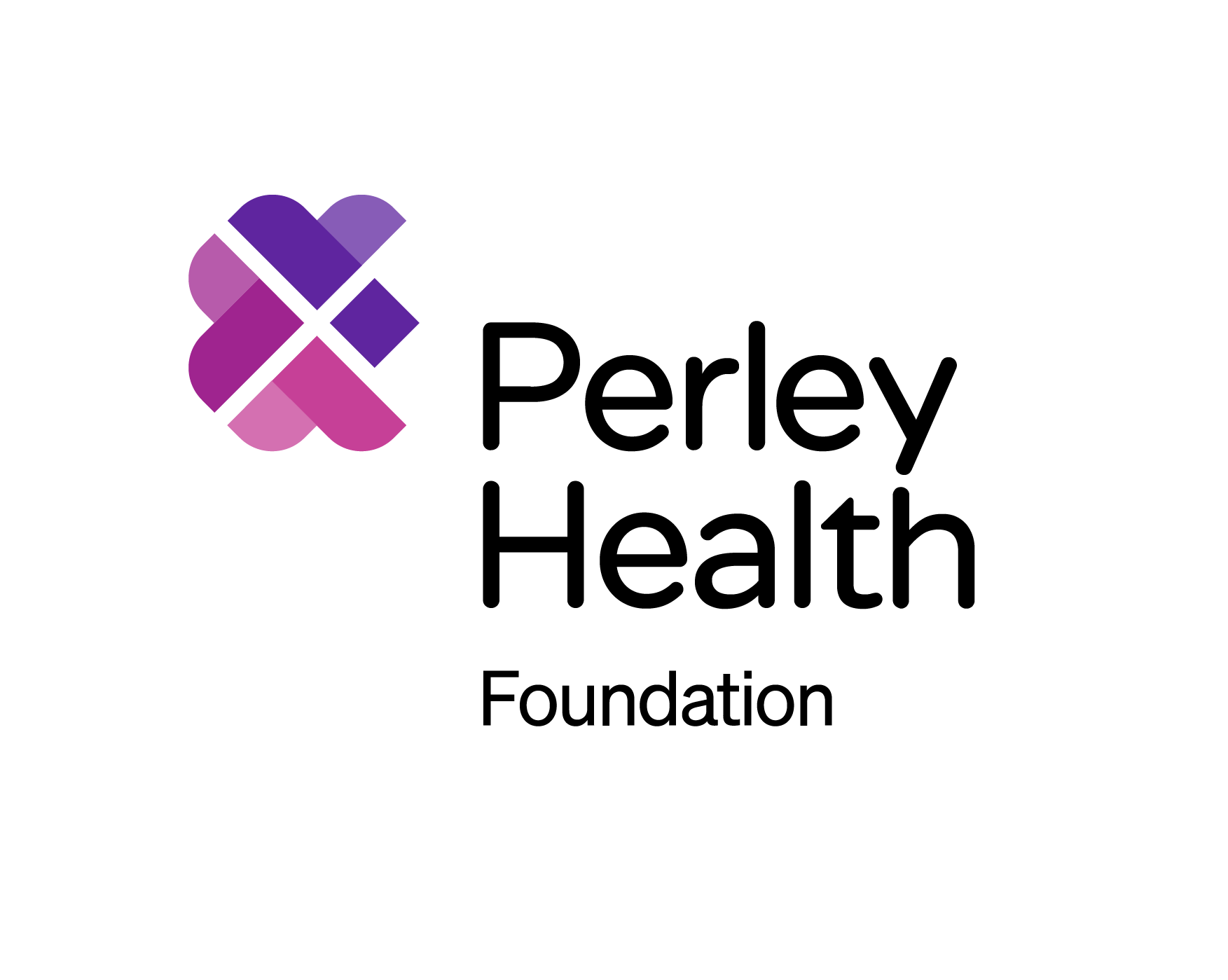Revolutionizing Senior Care at Perley Health
 Samantha Boulerice, RN and certified Wound Ostomy and Continence Care Specialist at Perley Health
Samantha Boulerice, RN and certified Wound Ostomy and Continence Care Specialist at Perley HealthUnveiling the Impact of Leadership in Pressure Injury Prevention and Treatment
A few years ago, with your generous support, Perley Health launched a quality-improvement project aimed at improving the tracking, prevention and treatment of pressure injuries among residents. The results have been overwhelmingly successful: the number of worsening pressure injuries at Perley Health has declined by 52%, while the number of infections in all types of wounds is down by 56%. The driving force behind this success is Samantha Boulerice, a Registered Nurse and certified Wound Ostomy and Continence Care Specialist at Perley Health.
“I’ve always had a passion to care for the elderly. I know that pressure injuries can have devastating impacts on residents. Many can’t find a comfortable position, so they choose to stay in their rooms and avoid activities, which can make matters worse.”
Boulerice is quick to share credit for the initiative’s success with Perley Health staff, donors and partners. The initiative began with a comprehensive analysis of how staff identify, treat and track pressure injuries, along with a review of relevant clinical guidance, including best practices published by the Registered Nurses Association of Ontario (RNAO). Perley Health has long participated in RNAO’s Best Practices Spotlight Organization program. Under the program, Boulerice completed an advanced clinical practice fellowship and mentored under Christine Murphy, PhD., a recognized leader in wound care who works at the Ottawa Hospital.
Thanks to your generous support, Perley Health established a quality-improvement team with representatives from across the organization—not only nurses, personal support workers and occupational therapists, but also those responsible for staff training, and ordering and stocking supply cupboards.
Together, the team identified a series of effective operational actions and an overarching strategy to foster adherence. The actions focus on operations—measures that ensure staff can consistently apply clinically proven prevention and treatment protocols.
To share lessons learned with other LTC homes, Perley Health’s donor-supported Centre of Excellence in Frailty-Informed Care™ created a tip sheet—Six Key Elements of an Effective Wound-Care Program—along with a booklet of guidelines and a website. Centre of Excellence Knowledge Translation Specialist Heather MacLeod and her team are distributing and promoting these resources at a series of events, such as this spring’s conference of AdvantAge Ontario, the association of non-profit LTC homes.
“It makes me happy to know that what we learn and apply at Perley Health can benefit residents of other homes,” says Boulerice, who is now also involved in a quality-improvement project related to antimicrobial stewardship. “And a big thank-you to donors, who make it all possible.”

